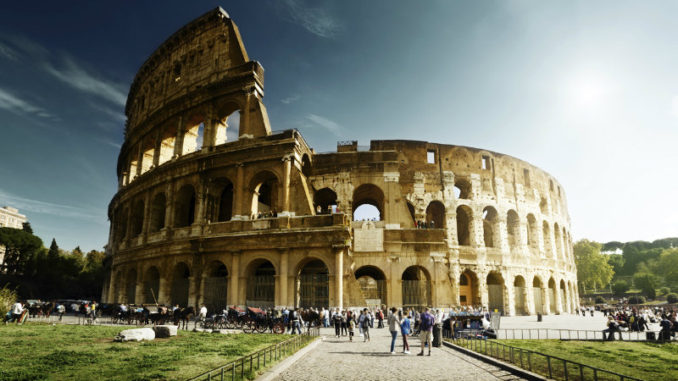
ROME – A Chilean couple, aged 40 and 42, brought shame to their country after they were caught in Italy trying to steal bricks from Rome’s iconic Colosseum, Italian media reported earlier this week.
The middle-aged tourists, who were not named, put the historical fragments from the base of the crumbling building in a bag but were rumbled by officers from the Carabinieri – Italy’s military police.
The man was using a key to etch a large heart in the Roman wall, with his and his girlfriend’s initials on either side.
Police charged the couple with stealing cultural assets belonging to the state, according to Italian news site Romait.it.
“Rome deserves respect. Whoever harms the Colosseum harms all Romans and all who love the city,” Mayor Virginia Raggi tweeted previously.
Virginia Raggi, the Mayor of Rome, has warned of a worrying trend of tourist vandalism and theft.
The Colosseum or Coliseum, also known as the Flavian Amphitheatre, is an oval amphitheatre in the heart of Italy. Built of concrete and sand, it is the largest amphitheatre ever built.
The historic monument, protected by UNESCO, can no longer be used for big shows because of the ruined state of the interior. But many shows, concerts have been held outside. Ray Charles, Paul McCartney and Elton John are just some of the great singers who performed here.
It was voted as one of the New Seven Wonders of the World.
This is not the first time a tourist has mistreated the ancient building.
In April, an Ecuadorian man was fined for carving an amorous message to his wife on Colosseum.
In February, a French tourist was punished for digging up an ancient Roman coin and using it to etch her name into the landmark.
Rome is not the only city to fall victim to a new generation of tourists who seem to have no respect for the heritage of the world’s oldest cities. Last week, a tourist from the Ivory Coast damaged a facade of the Basilica di Santa Maria degli Angeli, a medieval church in Assisi.



